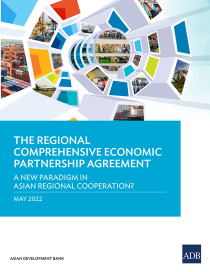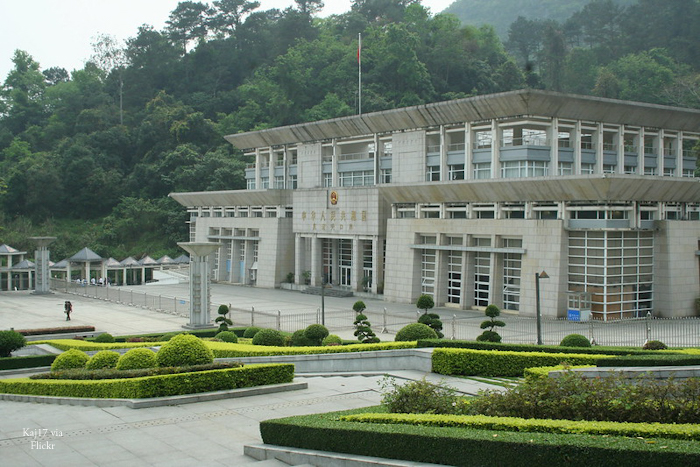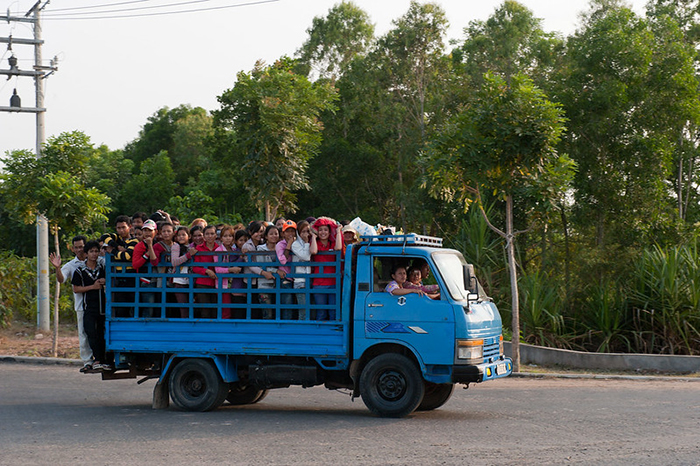
Asian Development Bank and the Lao PDR: Fact Sheet
ADB is one of Lao PDR's largest sources of official development assistance, with an average annual lending of $100 million over the 5 years to 2021.
Countries of the Greater Mekong Subregion are working to make the movement of goods and services across borders faster, easier, cheaper, more compliant, and more inclusive.
Over the past decade, the Greater Mekong Subregion’s (GMS) road network has expanded by almost 200,000 kilometers, and overland road freight has almost doubled. Yet despite these advances, remaining barriers to trade and transport continue to inhibit the subregion’s full economic potential and the cost of cross-border land transport remains high.
With much of the hard infrastructure in place, there has been a greater focus in recent years on the rules, regulations, agreements, and other “software” to make the movement of goods and services across borders in the GMS faster, easier, cheaper, more compliant, and more inclusive.
The GMS Economic Cooperation Program Strategic Framework 2030 (GMS-2030) focus on trade facilitation will modernize customs and establish sanitary and phytosanitary regulations. It will also strengthen links to the private sector. GMS-2030 will support the development of e-commerce platforms in the subregion. By facilitating investment, the strategy will ease or eliminate investment flow constraints and create an integrated investment market. GMS-2030 was endorsed and adopted at the 7th GMS Summit of Leaders in September 2021. It aims to provide a new setting for the development of this subregion for the next decade.
The GMS Transport and Trade Facilitation Action Program is working to overcome existing barriers in order to link the subregion to the ASEAN Economic Community’s single market and production base, as well as other regional cooperation initiatives.
The program is helping to expand transport and traffic rights along the GMS Cross Border Transport Facilitation Agreement (CBTA). route network; simplify and modernize customs procedures and border management; and strengthen the capacity of sanitary and phytosanitary agencies in the subregion.
To facilitate progressive implementation of the CBTA, the GMS Transport Ministers as members of the CBTA Joint Committee have agreed to an “Early Harvest” memorandum of understanding to allow the issuance and mutual recognition of GMS Road Transport Permits along the CBTA Protocol 1 route network and the border crossing points along these routes starting August 2018.
Related
• ‘Early Harvest’ Implementation of the Cross-Border Transport Facilitation Agreement
• Joint Committee for the CBTA
• Statement of the Seventh Meeting of the Joint Committee for the CBTA (13 March 2019)
Focal Persons at the Asian Development Bank
Asadullah Sumbal
Regional Cooperation and Integration Unit Southeast Asia Department
Dorothea Lazaro
Regional Cooperation and Integration Unit
Central and West Asia Department
Mohammad Nazrul Islam
Transport Sector Office
Sectors Group
Other Concerned Staff & Consultants
Antonio Ressano
Regional Cooperation and Integration Unit
Southeast Asia Department
Lucia Martin Casanueva
Regional Cooperation and Integration Unit
Southeast Asia Department/GMS Secretariat
Send inquiries to GMS Secretariat.

ADB is one of Lao PDR's largest sources of official development assistance, with an average annual lending of $100 million over the 5 years to 2021.

ADB remains deeply concerned about recent developments in Myanmar and will continue to consult with shareholders and other stakeholders on any operations in the country.

ADB is one of Cambodia's largest sources of official development assistance, with average annual lending of $329.8 million from 2016-2021. The bank's support is aligned with the Cambodia's National Strategic Development Plan 2019-2023.

This report compares the Regional Comprehensive Economic Partnership (RCEP) with other free trade agreements and suggests how policy makers can promote its successful implementation.

Photo by Kaj17 via Flickr. (CC BY-NC-ND 2.0)
The Guangxi Zhuang Autonomous Region (GZAR) of the People’s Republic of China (PRC) has opened seven highway ports and one railway port for cross-border cargo with normalized customs clearance processes. Statistics from the GZAR’s Department of Commerce reported that 3,344 vehicles entered and exited through Guangxi’s border highway ports during the May Day holiday in 2022. The May Day holiday is one of the peak travel times in the country.
Thailand will accelerate its railway connectivity, in line with the opening of the railway link between the People’s Republic of China (PRC) and Lao People’s Democratic Republic (Lao PDR) in December 2021.

Workers take a ride on a truck after their shift at a factory in Cambodia. Photo by ADB.
The Asian Development Bank (ADB) has approved an $82 million loan to improve about 48 kilometers of national and provincial roads in Prey Veng and Kandal to boost economic development along the Greater Mekong Subregion (GMS) Southern Economic Corridor.
Two trucks were flagged off at the launch of cross-border freight transport between Kunming in Yunnan Province, People’s Republic of China (PRC), and Vientiane, Lao People’s Democratic Republic (Lao PDR), on 25 August. The Vientiane-bound truck from PRC carried around 3 million CNY (around $464,000) worth of machinery, equipment, and electronic appliances, while the truck bound for Kunming carried Laotian goods. Both trucks will pass through the Bohan (PRC)-Boten (Lao PDR) border checkpoint.
Thailand’s Ministry of Commerce’s Trade Policy and Strategy Office (TPSO) organized the CLMVT+ Forum 2021 on 24-26 August. The forum highlighted the TPSO study emphasizing the importance of achieving an even economic recovery in the GMS.
Trade promotion agencies of Cambodia, India, Thailand, and Viet Nam held an event promoting cross-border trade connectivity between India and countries in the Greater Mekong Subregion (GMS) on 19 August. Representatives from each country gave briefings on their business environment and exchanged experiences in facilitating trade and investment cooperation. Noting challenges caused by COVID-19, they urged governments to take measures to help their small and medium-sized enterprises (SMEs) move beyond national borders and expand markets.